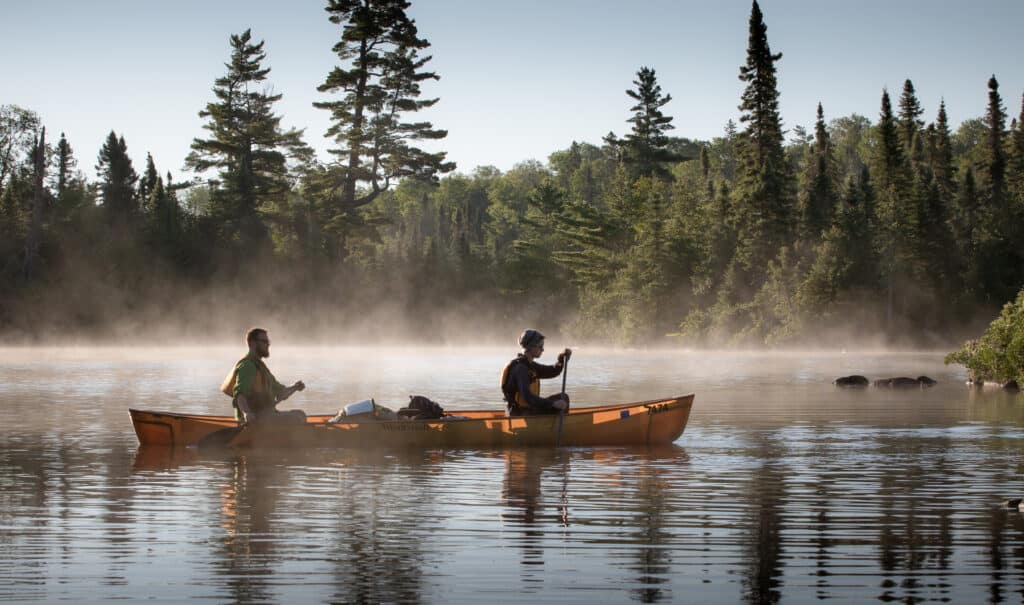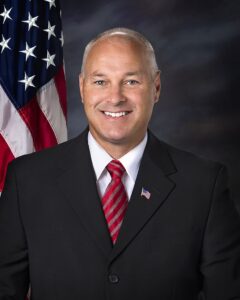
A bill that could reverse the 20-year ban on mining leases near the Boundary Waters Canoe Area (BWCA) passed the U.S House. It will soon move on to the Senate. Environmental advocates express concern over the reversal of mining leases that could impact watersheds in the region.
Initiated by Congressman Pete Stauber, H.R. 3195 would reverse Public Land Order 7917, which withdraws 225,504 acres of the Superior National Forest for 20 years. Furthermore, it would require the re-issuance of every mineral lease in the Superior National Forest.

“Instead of flat-out rejecting any mining project from developing the Duluth Complex located within the Superior National Forest, it is important to allow project-specific reviews that are based on facts and science to take place. My legislation will remove the obstacles put in place by the Biden Administration, allowing our skilled miners to prove that they are ready to safely deliver Minnesota’s mineral wealth to the nation using the best environmental and labor standards in the world,” according to a statement released by Stauber.
Stauber represents Minnesota’s 8th congressional district which covers the northeastern part of Minnesota. It is anchored by Duluth, the state’s fifth-largest city. It also includes most of the Mesabi and Vermilion iron ranges as well as the Superior National Forest and BWCAW.
Interested mining companies
Copper-nickel mining in Minnesota has been the interest of mining companies for many years. In recent years, the focus has been on Twin Metals Mining, a subsidiary of the Chilean conglomerate Antofagasta. In 2023, the Biden Administration withdrew national forest lands from future mineral leasing for 20 years. As a result, this action not only protected the BWCA but also the 1854 Ceded Territory of the Chippewa Bands.
Concerns over review process
Environmental advocates state that “mining generates waste rock full of sulfates, which becomes sulphuric acid, and leaches toxins like heavy metals into the surrounding water.” Executive Director, Ingrid Lyons with Save the Boundary Waters said that the bill “would shortcut really critical environmental review processes in our state and allow for dangerous projects like Twin Metals mine to move forward.” Sulfide-ore copper mining has never been done in the state of Minnesota.
ABC affiliate, WDIO reported that Senator Tina Smith will not support the bill. “The Boundary Waters are some of the cleanest waters on Earth. I support mining, but not sulfide mining in the Boundary Waters Canoe Area Wilderness watershed. The Superior National Forest Restoration Act rejects the science, and would put one of Minnesota’s greatest treasures at risk,” she stated.
Mining interests include watersheds that flow into the BWCA. A major recreation area for outdoor enthusiasts, the wilderness has more than 1,200 miles of canoe routes and covers 190,000 acres of surface water. The Superior National Forest welcomes nearly 900,000 visitors annually.
More info:
- House Passes Stauber’s Legislation to Overturn Biden’s Mining Withdrawal in the Superior National Forest – Rep. Pete Stauber
- Stauber’s bill to overturn mineral withdrawal passes U.S. House, now heads to the Senate – WDIO
- House Republicans Are Protecting America’s Public Lands And Waters – House GOP
- Biden-Harris Administration Protects Boundary Waters Area Watershed – U.S. Department of the Interior

Wilderness guide and outdoorswoman Pam Wright has been exploring wild places since her youth. Remaining curious, she has navigated remote lakes in Canada by canoe, backpacked some of the highest mountains in the Sierra Nevada, and completed a thru-hike of the Superior Hiking Trail. Her professional roles include working as a wilderness guide in northern Minnesota and providing online education for outdoor enthusiasts.

